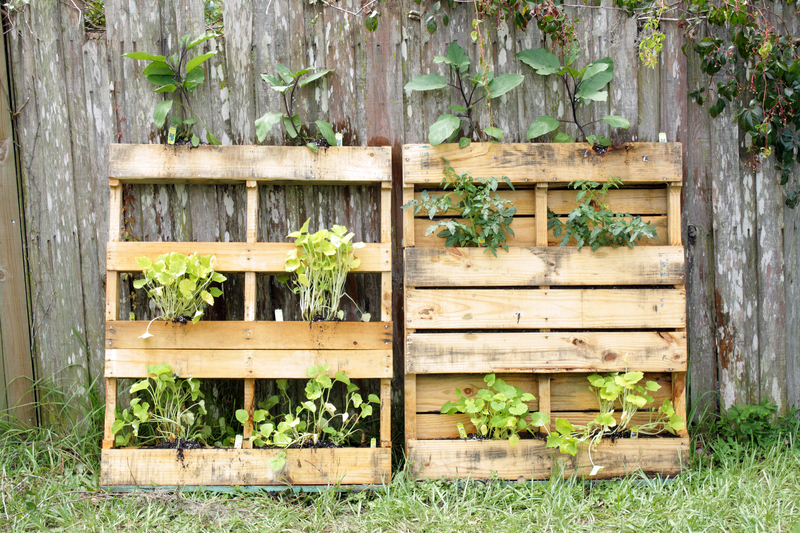How to Avoid Extra Charges When Dealing with Bulky Waste Items
Bulky waste items--like old sofas, refrigerators, mattresses, and furniture--can be a hassle to dispose of correctly. Many homeowners and businesses encounter unexpected fees, fines, or extra costs when dealing with large waste. If you want to avoid unpleasant surprises and minimize expenses in getting rid of your bulky junk, it's essential to learn the best strategies for responsible, cost-efficient disposal. In this comprehensive article, we share expert tips, cover common mistakes, and highlight budget-friendly methods for discarding large unwanted items without incurring extra charges.

Understanding Bulky Waste: What Counts as Bulky?
Before tackling the bulky waste removal process, it's important to understand what constitutes a 'bulky item.' Local regulations and waste management services often define bulky waste as:
- Large items too big for standard wheelie bins
- Furniture (sofas, beds, wardrobes, tables, chairs)
- White goods (fridges, freezers, washing machines)
- Appliances (ovens, microwaves, dryers)
- Mattresses, carpets, and large rugs
- Garden equipment (lawn mowers, BBQ grills, trampolines)
These oversized waste items typically require special handling--and, without the right approach, can lead to extra disposal charges.
The Hidden Costs of Bulky Waste Disposal
Why do extra fees often arise with bulky waste disposal? Here are some common causes:
- Weight-based pricing: Many haulers charge by the weight or volume of what's collected. Overloading can be costly.
- Additional trips: Exceeding the allowed amount or underestimating volume may require extra collection runs, each with an associated charge.
- Improper item categories: Mixing hazardous waste or electricals with regular bulky items can incur fines or special handling fees.
- Non-compliance fines: Leaving items in the wrong location or on the wrong day can result in penalties.
- Labor charges: Some companies bill extra for collection teams to move items from inside the property or up/downstairs.
Understanding these costs allows you to plan ahead and avoid unnecessary bulking of your bill.
Pro Tips to Avoid Extra Charges for Bulky Waste Collection
1. Know Your Local Regulations and Schedules
Every town, city, or municipality has specific policies regarding bulky waste. To save money:
- Visit your local council's website to find bulky waste collection schedules and rules.
- Check if there are free or subsidized collection days for residents.
- Understand limits on item numbers, sizes, or types per collection.
- Register in advance if pre-booking is required.
2. Prepare Items Correctly
Many extra charges result from incorrect preparation. Effective ways to prepare bulky waste include:
- Disassemble furniture where possible for easier, cheaper collection.
- Remove non-bulky elements: Take cushions, covers, or hazardous components out.
- Bundle or tie together smaller pieces to save space on the truck.
- Avoid mixing prohibited materials in with standard bulky waste.
- Label items clearly if required by your local handler.
Tip: Some councils fine for "contaminated loads" caused by incorrect contents, so follow guidelines closely.
3. Choose the Right Collection Service
- Compare municipal services, private waste hauliers, and specialist bulky item collectors for the best deals and most inclusive pricing.
- Request a clear upfront quote detailing any possible extra charges.
- Check the collection company's policy on "missed" pickups or items left uncollected.
How to avoid overpaying? Choose a service based on transparency, reputation, and proven compliance with local disposal regulations.
4. Consider Drop-Off and Community Recycling Programs
If your local area allows, you may be able to evade charges by taking items to:
- Your local household waste recycling centre (HWRC)
- 'Bring sites' for wood, metals, or electricals
- Council-run "bulky waste amnesty" drop-off days
Often, these options are free or low cost--perfect for households looking to avoid municipal collection fees.
5. Donate or Sell Usable Items
Before throwing out, ask: Could someone else use it? Many charities collect furniture or appliances for free IF they're in reusable condition:
- Contact local charities or online reuse networks
- List items on community platforms like Freecycle or Facebook Marketplace
- Offer to friends, family, or neighbors
By giving items a second life, you not only avoid bulky waste disposal costs but support your community and the environment.
Common Mistakes That Lead to Extra Bulky Waste Charges
To truly minimize charges, avoid these frequent but costly errors:
- Failing to check collection days. Leaving items out on the wrong day can mean a wasted trip and an extra fee.
- Ignoring size/weight limits. Items too large or heavy may be left behind or surcharged.
- Forgetting permits (for street placement). Items must often be left in designated zones--check for necessary permissions so you aren't fined.
- Mixing prohibited items. Including paint cans, batteries, or hazardous waste leads to cleanup surcharges.
- Late cancellations or no-shows. Skipping a booked collection frequently carries a penalty.
Remember: Being proactive and detail-oriented saves both money and hassle.
Bulky Waste Disposal on a Budget: Creative Solutions
Share a Collection with Neighbors
Pooling resources with neighbors for a joint collection can mean shared costs and fewer total trips, reducing everyone's fee. Contact others on your street to coordinate a shared booking.
Hire a Skip for Multiple Large Items
If you're clearing out an entire property, one-off skip hire can make more financial sense than individual collections. Compare sizes and check for hidden fees before booking.
Use Council Vouchers or Refund Schemes
Many councils offer annual vouchers, discounted rates, or refunds for responsible bulky waste disposal. Check your local authority for details.
Arrange a Garage Sale Before Disposal
Sometimes, you can turn bulky items into cash! Hold a sale to offload usable items, reducing the volume left for waste removal.
Environmental Impact and Legal Considerations
Proper disposal isn't just about avoiding extra charges for bulky waste--there are legal and environmental reasons to follow the rules:
- Illegal dumping can result in large fines and prosecution.
- Improper handling can cause environmental damage, especially with electricals or fridges.
- Recycling and reuse reduce landfill waste and support local charities and organizations.
What Happens to Bulky Waste?
Depending on your location and provider, bulky waste collection may involve:
- Sorting and recycling of wood, metal, glass, and plastics
- Safe handling of electronics and hazardous materials
- Donation of serviceable goods to reuse schemes
- Landfilling only as a last resort
By working with reputable, licensed collectors, you ensure your waste is disposed of responsibly--and avoid possible future charges or issues.
The Role of Licensed Contractors in Bulky Waste Removal
Not all waste contractors are created equal. It's vital to choose licensed, insured operators--especially for large or heavy items. Criteria to look for:
- Formal registration with your local waste authority
- Transparent pricing--no hidden surcharges
- References or positive reviews from past customers
- Clear policies on recycling and eco-friendly disposal
Unregistered "cheap" services can leave your waste illegally dumped, leading to fines for you--so always check credentials before booking.

Key Takeaways: Top Ways to Avoid Extra Bulky Waste Charges
- Plan early: Don't leave disposal to the last minute. Schedule early to lock in best prices and follow guidelines.
- Prepare items well: Disassemble, clean, and separate according to your provider's rules.
- Compare providers: Seek inclusive quotes and read the small print for potential add-on fees.
- Explore alternatives: Donation, reuse, and recycling may be cheaper and greener routes.
- Stay legal: Follow disposal regulations to avoid fines and extra costs.
Conclusion
Bulky items don't need to be a financial headache. With the right research and preparation, you can avoid extra charges for bulky waste and do your part for the environment. By understanding local rules, preparing items properly, comparing collection options, and exploring creative solutions, you'll manage large waste items efficiently and affordably. Don't let unwanted sofas or appliances cost you more than they should--take control and make your next clear-out a stress-free, budget-friendly experience!
For more advice on responsible waste disposal and money-saving tips, keep exploring our site and stay updated on your local council's offers and policies.
